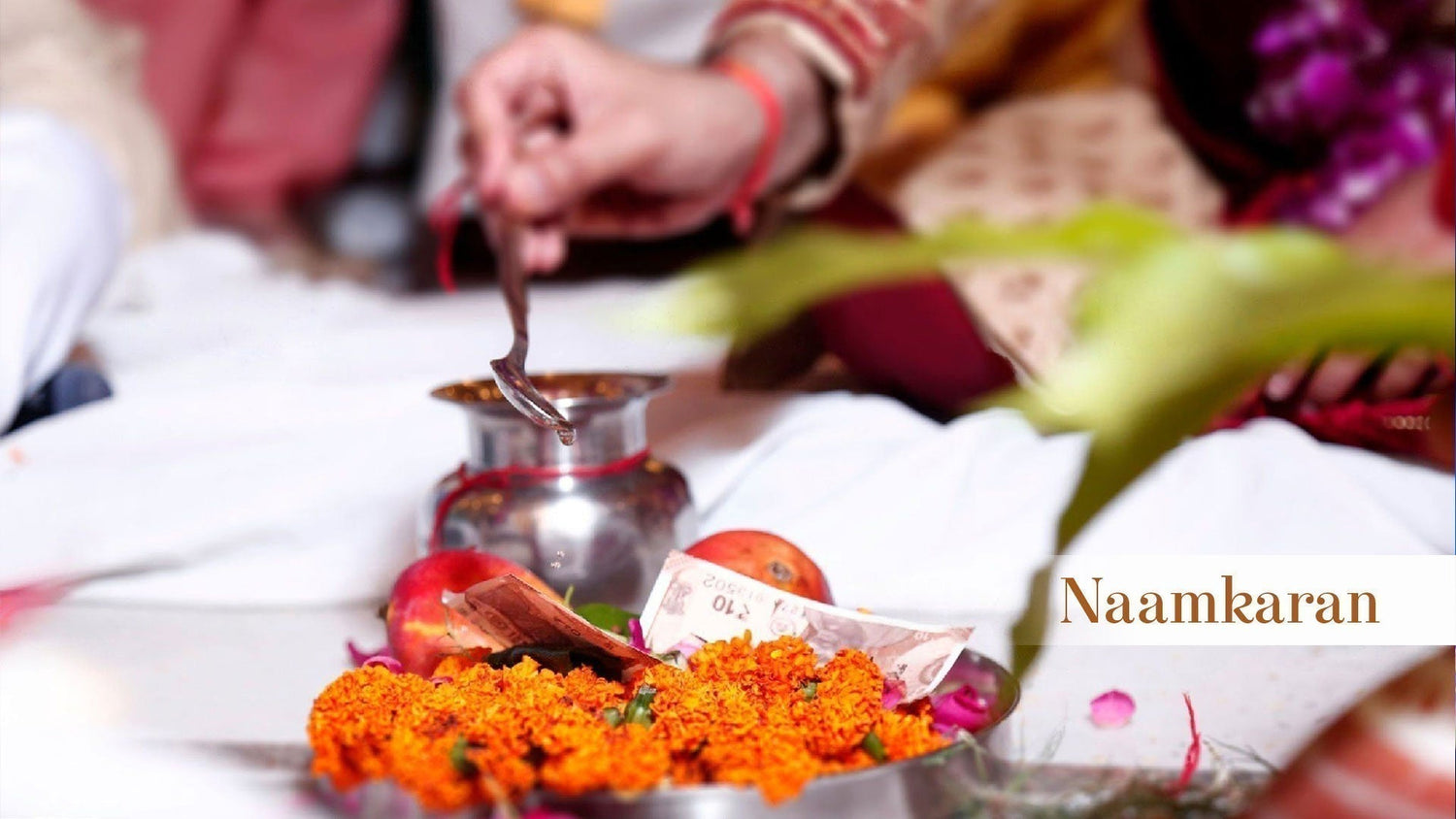
When Should You Start Bottle-Feeding a Breastfed Baby?


Annaprashan: The First Meal Of Your Baby

Mundan Ceremony: The Baby's First Haircut

5 Baby Rituals That Every Parent Should Know

A Parent's Guide to Baby Ear Piercing: Here’s What You Ne...

Jatakarma: The Baby's First Ritual.

Baby Playtime Guide: What You Must Consider While Playing...

Early Signs of Postpartum Complications: What to Look Out...
The birth of a baby brings immense joy to a family, and with this joy comes the responsibility of choosing the perfect name. In Indian culture, this significant moment is celebrated through a traditional ceremony known as Naamkaran or the Naming Ceremony. This ancient ritual holds deep cultural and spiritual significance, as it marks the official naming of a newborn and is believed to shape the child's identity for life.
Naamkaran is one of the sixteen sacraments, or "Samskaras," in Hindu tradition. It is believed to purify and sanctify various stages of life. While the tradition is deeply rooted in Hindu culture, it is also practiced by other communities across India, including Sikhs, Jains, and Buddhists, each with its unique rituals and customs.
In Hinduism, the naming ceremony is considered sacred and is often mentioned in ancient texts like the Manusmriti and the Garuda Purana. These texts emphasize the importance of choosing a name that has a pleasing sound and carries a positive meaning and auspicious associations.
Traditionally, Naamkaran is performed after the Sutika period ends, typically on the eleventh or twelfth day after the baby's birth. However, after consulting with a priest, parents can choose to perform the ceremony on any auspicious day within the first 100 days or before the child's first birthday.
Preparing for the Naamkaran ceremony begins with selecting an auspicious date and time, often determined by consulting a priest or astrologer who considers the baby's birth chart (Janam Kundli). This ensures that the name chosen is in harmony with the child's astrological signs, potentially bringing good fortune and happiness.
The family also prepares for the ceremony by cleaning the house, decorating the space with flowers and rangoli (traditional patterns made on the floor), and setting up a sacred altar where the rituals will take place.
Havan Poojan: The parents perform the Havan Poojan for the prosperity and well-being of their baby. In the presence of Agni (the Fire God), the elements, Mother Earth, and the Sun, it is believed that this ritual enhances the child's future by formally recognizing their identity.
Choosing the Name: According to traditional customs, a syllable for the baby's name is often chosen based on their moon sign, the initials of their nakshatra (birth star), or their sun sign. However, it is not mandatory to follow these signs strictly. Nowadays, many parents decide on their baby's name in advance, while others seek guidance from a priest to choose a name that aligns with astrological signs.
Announcing the Name: Once the name is chosen, the father writes it on a bronze plate filled with rice grains, optionally using a gold ring. He whispers the chosen name four times into the baby's right ear before formally announcing it to family and friends.
Post-Ceremony Traditions: After the Naamkaran, the family may host a feast to celebrate the occasion, where guests are served traditional foods and sweets. It is also customary for family members and friends to give gifts to the baby, often in the form of clothes, jewellery, or money, as blessings for a prosperous future.
In today's globalized world, the practice of Naamkaran has evolved to accommodate modern lifestyles and diverse family backgrounds. Interfaith marriages, exposure to different cultures, and the desire for unique names have all influenced how families approach the naming ceremony.
Many parents now opt for names that are easy to pronounce and have universal appeal, especially in urban settings where children are exposed to different languages and cultures. However, the core essence of the Naamkaran ceremony—the joy of welcoming a new life and bestowing a meaningful name—remains unchanged.

